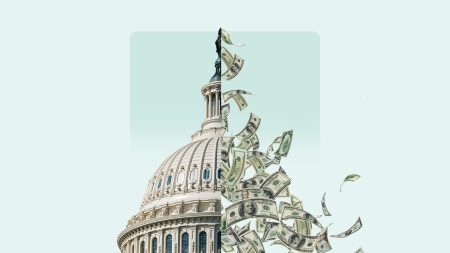Key takeaways
- Unemployment benefits are usually protected from wage garnishment.
- In some cases, your unemployment benefits can be garnished if you owe income taxes, student loan debt, child support or alimony.
- Filing for bankruptcy may help you protect your unemployment benefits from garnishment even for these reasons.
- Making a plan to repay your debts or working with a nonprofit debt counselor can help you work toward a better financial future.
Unemployment benefits are intended to help those who have recently experienced a job loss to overcome their financial hardship. The benefit amount is based on a percentage of an individual’s earnings over a recent 52-week period and will typically be paid up to a maximum of 26 weeks in most states.
Despite your employment status changing, your creditors still expect to be paid. In some cases, they may actively pursue you and even try garnering some unemployment benefits. If that happens, here’s what you need to know and what you can do to protect them.
How wage garnishment works
Wage garnishment happens when your employer follows a court order to withhold a certain percentage of your paycheck and send it to your creditor. This is typically because you have defaulted on your debt. The creditor sees little other option than to use the legal process to seek repayment.
If you don’t respond to a creditor’s attempt to collect a debt, they will eventually turn it over to a debt collector. The debt collector has a limited time to collect — usually before the debt falls off your credit report. If you ignore the debt collector and do not attempt to pay, they might start the wage garnishment process to recoup your debts.
In general, it’s impractical for all wages to be garnished. People have basic living expenses such as food and shelter to provide for themselves and their families. Therefore, according to the Department of Labor, the weekly amount of wage garnishment cannot exceed the lesser of:
- One-fourth of the employee’s disposable earnings.
- The amount by which an employee’s disposable earnings are greater than 30 times the federal minimum wage.
Unemployment and other benefits, such as Social Security, Federal Student Aid and disaster assistance, are usually protected from wage garnishment. However, certain financial obligations are not federally exempt, and garnishment rules vary by state.
Are unemployment benefits excluded from garnishment?
Generally speaking, unemployment benefits are exempt from garnishment. The government recognizes that if you have filed for unemployment, you’re most likely experiencing financial hardship and need this supplemental income.
However, there are some exceptions to these general rules.
Child or spousal support
While a job loss can be difficult, it does not excuse someone from their obligation to support their child or a former spouse. The Consumer Credit Protection Act’s Title III (CCPA) allows up to 50 percent of your disposable earnings to be garnished for these purposes if you’re supporting another spouse or child — and up to 60 percent if not.
These garnishments may include past-due child support and ongoing payments to be deducted from your unemployment benefits. The exact approach may vary by state.
Taxes
Your unemployment benefits may also be at risk if you owe state taxes in certain states. Each state has laws addressing this issue.
For example, in California, the amount that can be garnished is the lesser of 20 percent of the employee’s disposable earnings or 40 percent of the difference between the employee’s disposable earnings for that week and the applicable minimum wage for that week.
Student loan debt
You’ll be in default after you miss payments for more than 270 days on your federal student loans. Once this occurs, the loan server can request that your employer withhold some of your wages to repay the debt without taking you to court. The garnishment is usually up to 15 percent of your disposable income (including unemployment benefits) until the debt is repaid or your federal loans are no longer in default status.
In the case of private student loans, normal garnishment rules apply. The creditor must first sue you and have a court judgment placed against you before they can decide how much to withhold.
How to protect your unemployment benefits
It’s not always possible to keep your unemployment benefits from being garnished. However, some strategies may work to fend off wage garnishment.
Claim economic hardship
A financial hardship exists when someone needs all or almost all of of their income to cover necessary living expenses.
In other words, in addition to a job loss, you might already be in a low-income situation where the loss of your unemployment would affect your housing, food or ability to provide for your family. To prove this to the court, you’d need to show proof of your living expenses over the past few months and demonstrate how a loss of benefits would jeopardize you and your family.
Student loan options
If you owe payments on your student loan debt, you may be able to avoid wage garnishment by rolling your student debt into a consolidation loan. This is essentially where you pay off several smaller debts with one large loan. This combines everything in one monthly payment, making the debt easier to manage.
You can also attempt to rehabilitate your student loans. Rehabilitation is a voluntary agreement you enter with the loan servicer. As part of the agreement, you must make a series of nine consecutive payments, which typically amount to 15 percent of your discretionary income. This will remove the default status and halt wage garnishment or offsets of income tax refunds.
Make sure your creditor isn’t violating the law
There’s a limit to how aggressive a debt collector can be when pursuing repayment before the activity becomes illegal. For instance, they cannot:
- Harass or abuse you by making repeated calls, swearing, or using threatening language.
- Contact you at unreasonable times or places, such as before 8:00 a.m. or after 9:00 p.m.
- Threaten to arrest you or repossess your property without proper court proceedings.
If any encounters with your creditor or its representatives border on these behaviors, report them to the authorities immediately. Doing so might influence the court’s opinion about whether the creditor qualifies to receive your garnished wages.
Get debt counseling
Working with a nonprofit debt counselor can help you avoid wage garnishment. These organizations will work with your creditors on your behalf to develop a payment plan or create a debt management plan if necessary. Two popular options include:
- National Foundation for Credit Counseling (NFCC)
- American Consumer Credit Counseling (ACCC)
File for bankruptcy
Filing for bankruptcy is another way to stop many forms of wage garnishment. This approach won’t protect your unemployment benefits in all cases. For instance, filing Chapter 7 bankruptcy will not stop garnishment for child support or alimony payments.
When you pursue Chapter 13 bankruptcy, even garnishments for alimony and child support will be stopped. But you will still have to keep up with those alimony and child support debts over the next three to five years via a payment plan. Garnishment action ceases as long as you continue making the payments outlined in the plan.
The bottom line
Unless your debt is related to child support, taxes or federal student loans, a creditor isn’t allowed to garnish your unemployment benefits. If a creditor does attempt to garnish your unemployment benefits, seek the help of an attorney.
Creating a plan to repay debt while unemployed can help you improve your financial future and avoid future wage garnishment. Alternative options, such as working with a credit counselor or filing for Chapter 13 bankruptcy, may also help you protect unemployment and other income from garnishment.
Frequently asked questions
Read the full article here










